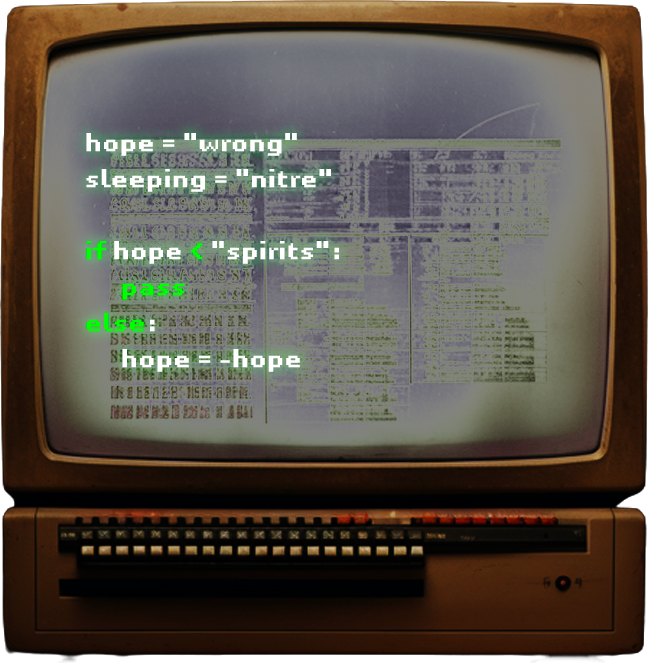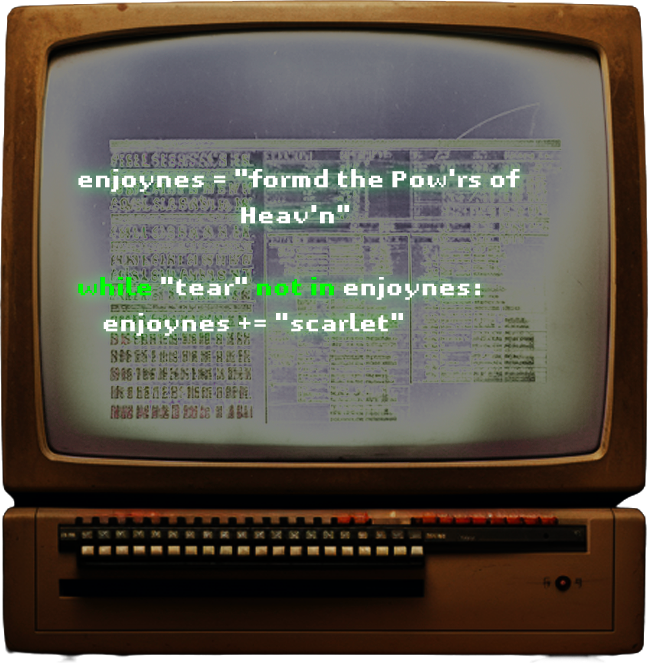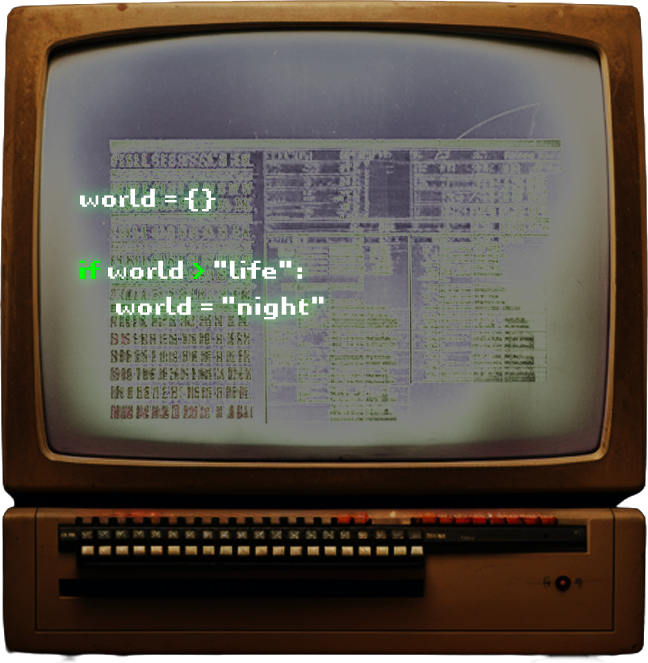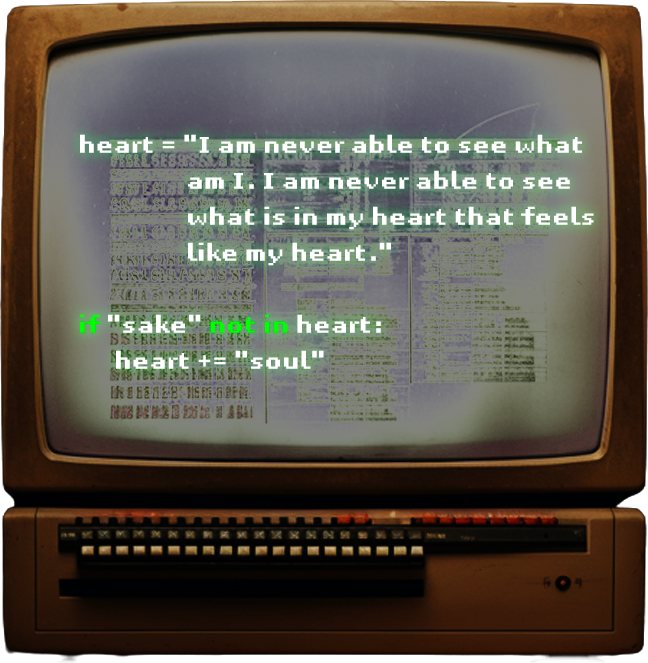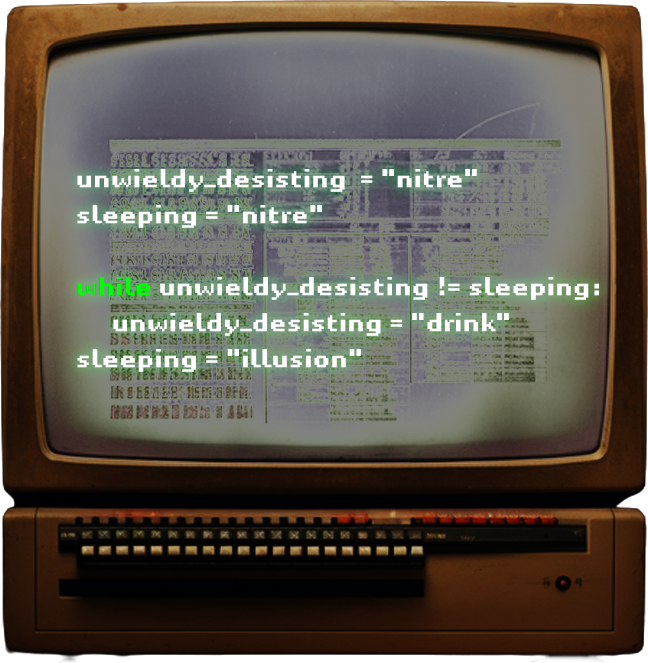8-Bit Poems
Reading And Writing Electronic Text
Python / NLP / GPT / Research / AIGC / Machine Learning
Spring 2023, New York.
OVERVIEW
In this delightful experiment,I write poems with Python. Code births harmonious chaos, evoking unforeseen emotions and untamed connections. Once the groundwork is set, I let randomness and chance take over, surprising me with every line.
I. Unforeseen
it’s like a mine disaster.
I think of all the people
lost inside of you."





II.
Morning Mosaic
the current rave in the fundamentalist landscape
disguised as her brain, a rococo lexicon
of Deuteronomy, Job, gossip, spritz, and neocon
ephemera all wrapped up in a pop burrito
of movie star shenanigans, like a stray Cheeto
found in your pocket the day after you finish the bag,
tastier than any oyster and champagne fueled fugue
gastronomique you have been pursuing in France
for the past four months. This 82-year-old's rants
have taken their place with the dictionary I bought
...”

III. Hey, ERROR
[]Error:
[Error Message][Description of the error, including any relevant information such as the invalid input value]
[Suggestions for resolving the error or troubleshooting steps to take]
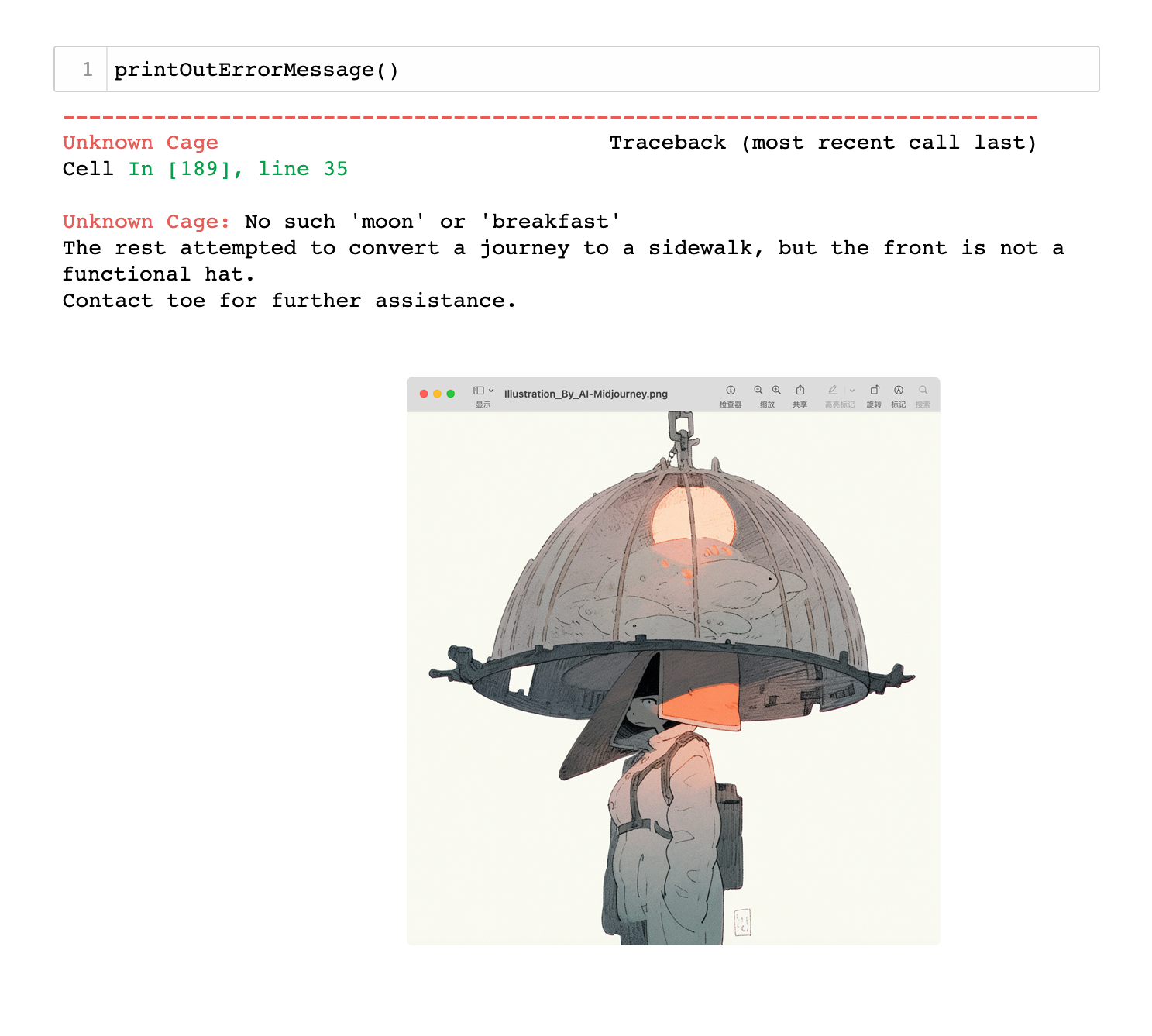
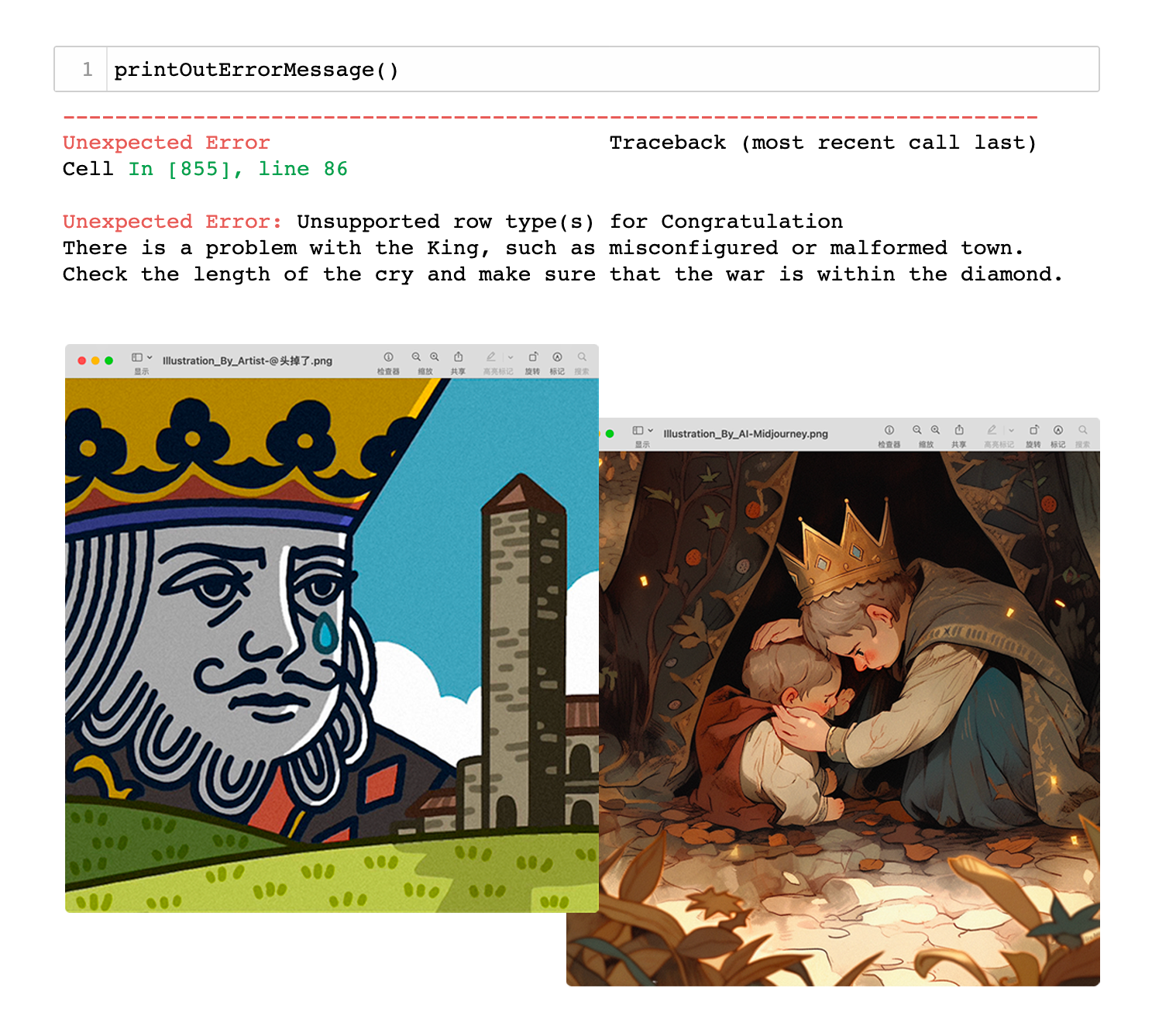
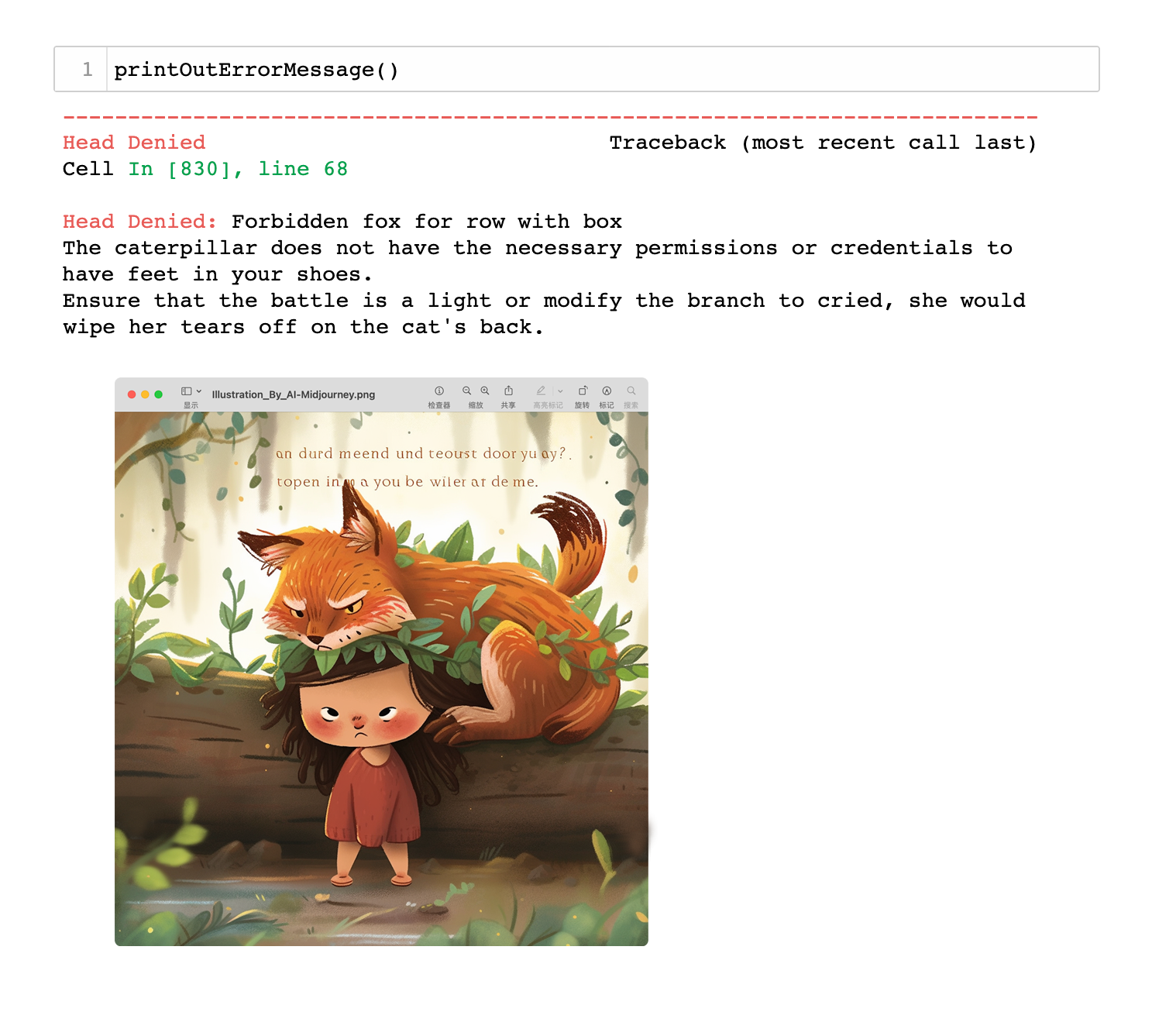
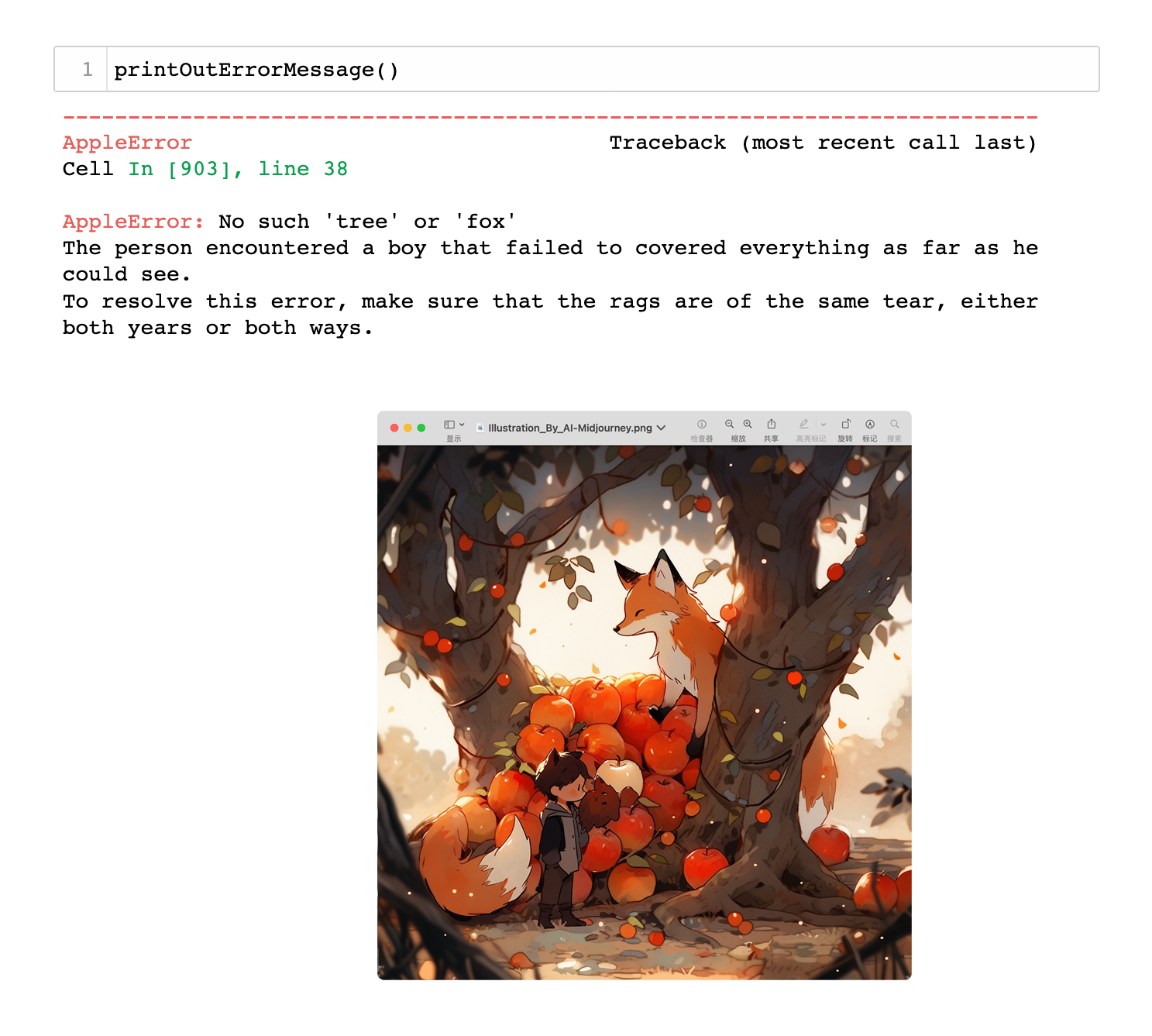
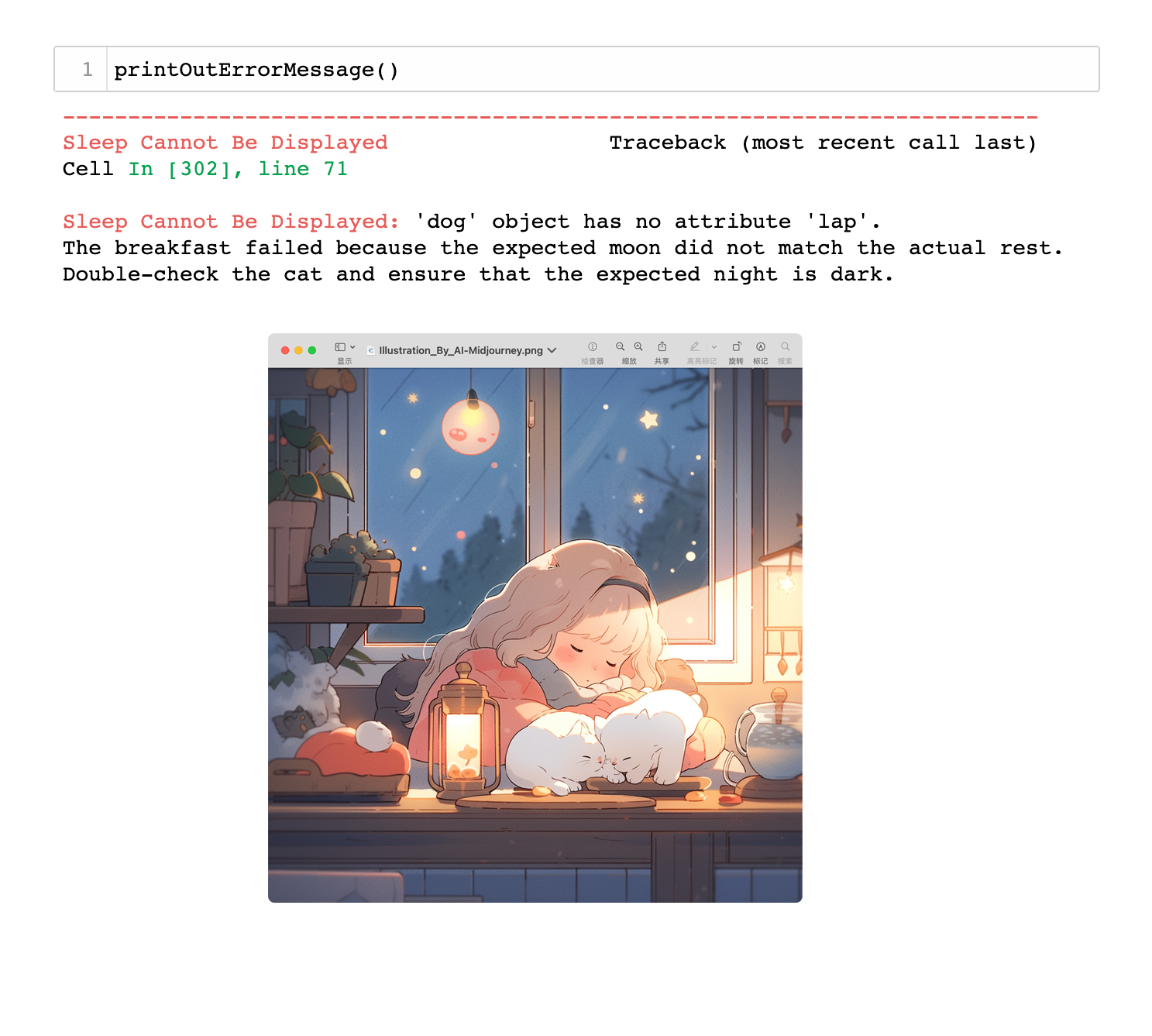
IV. Sorce Code Is Poetry
It explores the poetic dimension of code, where variables predominantly take the form of nouns and function names embody verbs. Inspired by this notion, I embarked on a poetic coding endeavor, seeking to generate code that resembles poetry. The process involved two main steps:
1. Randomly generating concise source code poems using words from the Gutenberg Poetry corpus.
2. Utilizing user input prompts to find similar sentences in the 20th Century love poems corpus. These sentences served as prompts for a fine-tuned GPT2 model, generating paragraphs. I then extracted nouns and verbs from the paragraph to compose the final source code poem.
Though currently limited to generating short code poems, my vision for the future is to create a website enabling the crafting of code poems with specific functions and performance in mind.
